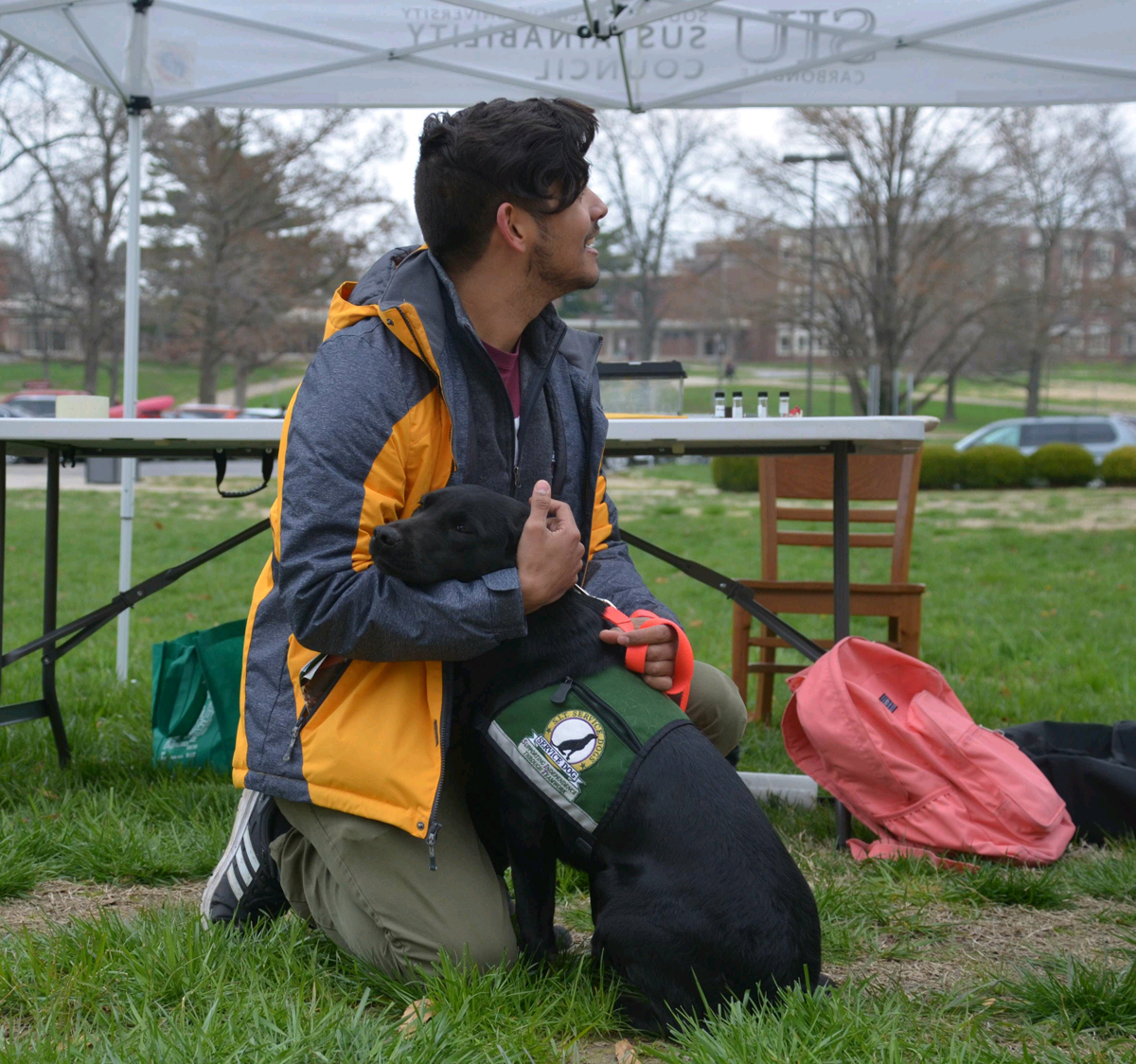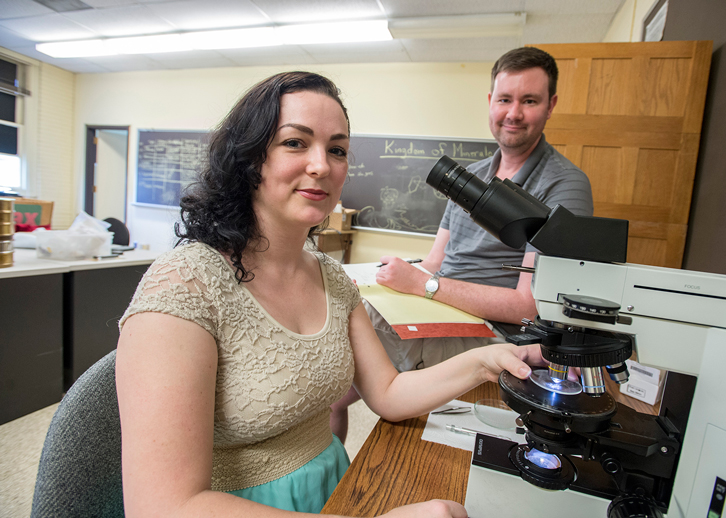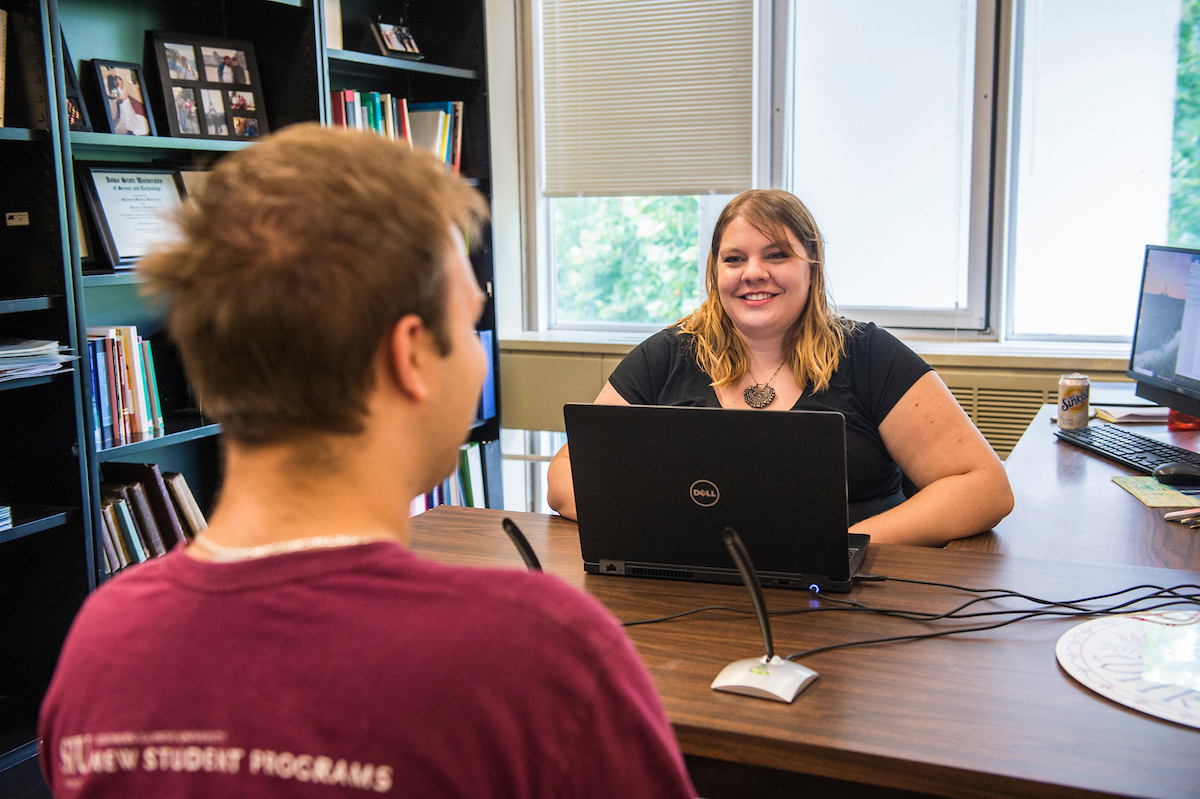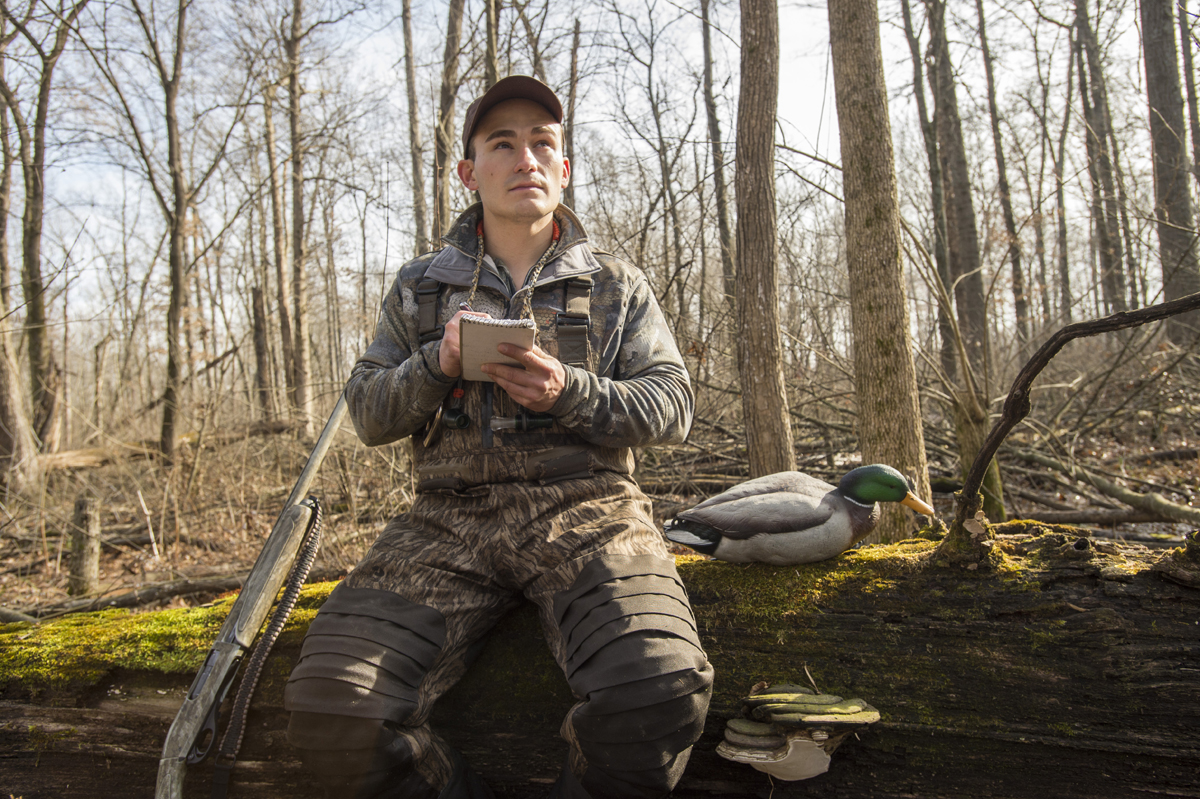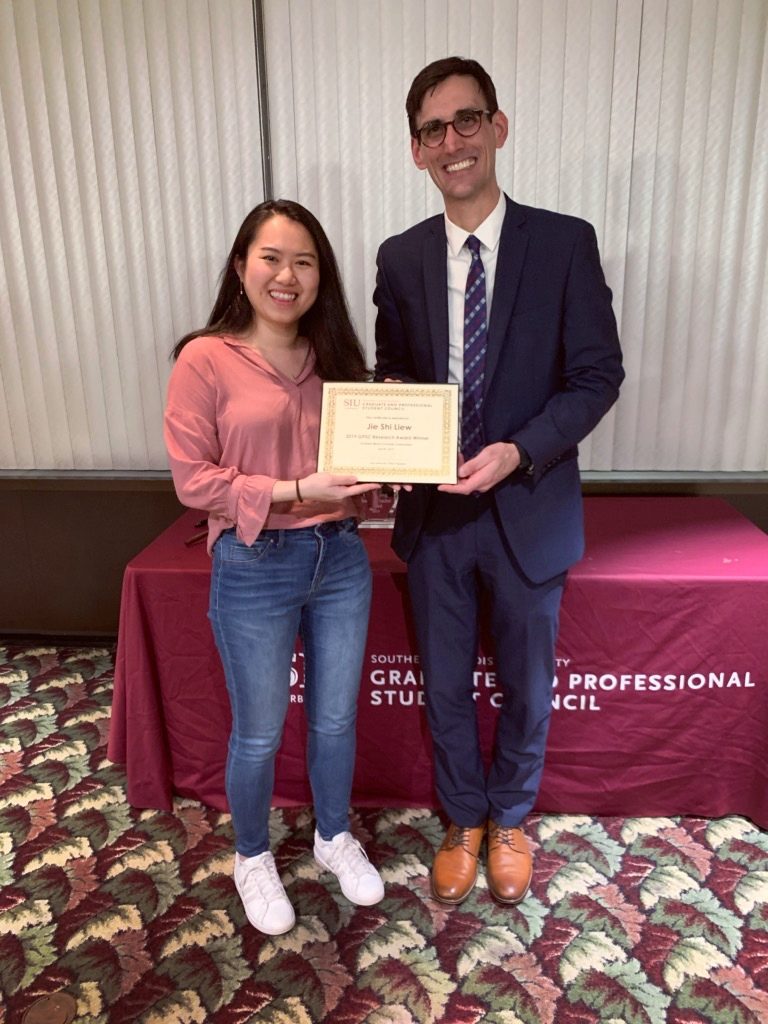
Jie Shi Liew with current GPSC President, Clay Awsumb, receiving her 2019 GPSC Research Award (photo provided).
Social media analysis does not often fit in the same conversation as geographic information system research, but Jie Shi Liew, a student at Southern Illinois University Carbondale, sees unique benefits in combining the two practices.
Once completed, her research might give a better glimpse into how and why the government makes environmental laws, and whether those policies change based on social media interaction and community involvement.
Combining GIS with social networking
Over the last few years, research has greatly developed in both the fields of geographic information system and social network analysis. Yet, while both fields continue to see growth, little research looks at a combination of the two together.
“For GIS we often look at location, which also examines where people are at on those locations,” Liew said. “Social network analysis is also very closely related, as it looks at people.”
If we can look at people, and at the same time know where they are from, we can get a brand new combination of two resources we already have, Liew explained.
Evaluating social media to understand the impact of public opinion
One of the most useful places for the two techniques to combine is evaluating how the laws and policies are adjusted based on public opinion. As a geography and environmental resources major, Liew is most interested in analyzing social media conversations centered on renewable energy sources.
Liew, under the guidance of Ruopu Li, assistant professor in the geography degree program, is analyzing Twitter data to see how often people mention energy topics. She is then using GIS techniques to evaluate how different rules vary in different regions. Her goal is to understand the correlation between social interaction on these topics and government implemented policies.
Thanks to her background in mathematics, Liew has a leg up on the coding elements of the research. By combining the GIS coding with the social network analysis data, it gives a unique peek in to how people are feeling about the energy industry.
“We are planning to look into hashtags and comments about coal usage on Twitter to see what people are thinking,” Liew said. “At the same time, we will use our coordinate data to see where the individuals are from.”
Influencing governmental decisions on renewable energy sources
To get started, Liew is focusing on coal topics as her sample study group. Eventually, she hopes to use the research to encompass other energy sources as well.
“We picked coal as just a starting point in the conversation,” Liew said. “Our end goal is to benefit the renewable industry.”
A couple of states are very high in coal production, with Wyoming holding as the leader. Yet, over the years, these states have fluctuated in their overall coal usage. Liew’s goal is to determine if the social behaviors from the communities affect how the government decides to use renewable energy sources.
“I don’t know how much I can change the government or policy makers, but if our research can prove that social behavior has a little bit of effect on the country, then people might be more encouraged to speak up,” Liew said.
SIU as launching point for Liew
While living in Malaysia, Liew’s focus often centered on daily life without as much consideration for the bigger picture. When she came to SIU, it opened her eyes to how much can be done to strengthen and support our planet for generations to come.
“Often times we can’t do big things,” Liew said. “But we can do those little things that build up and contribute to our society.”
Renewable energy seems to be the trend of the future, with new technology constantly working to reduce costs and make energy sources more available to the average person, Liew explained. While installing a solar panel or other renewable energy source can be a big one-time investment, over time it can save money while also benefitting the global environment.
“Renewable energy is very important because it is one of the best ways to take care of our earth,” Liew said.
In recognition of Liew’s work, she recently won the Graduate Professional Student Council Research Award. The honor came with special funding, which Liew plans to use to purchase the necessary Twitter data.
Joining SIU as an international student and facing a language barrier, Liew faced many self-doubts working on her research and studies. Earning the GPSC research award was a confirmation of all her hard work, and motivation to keep going forward.
